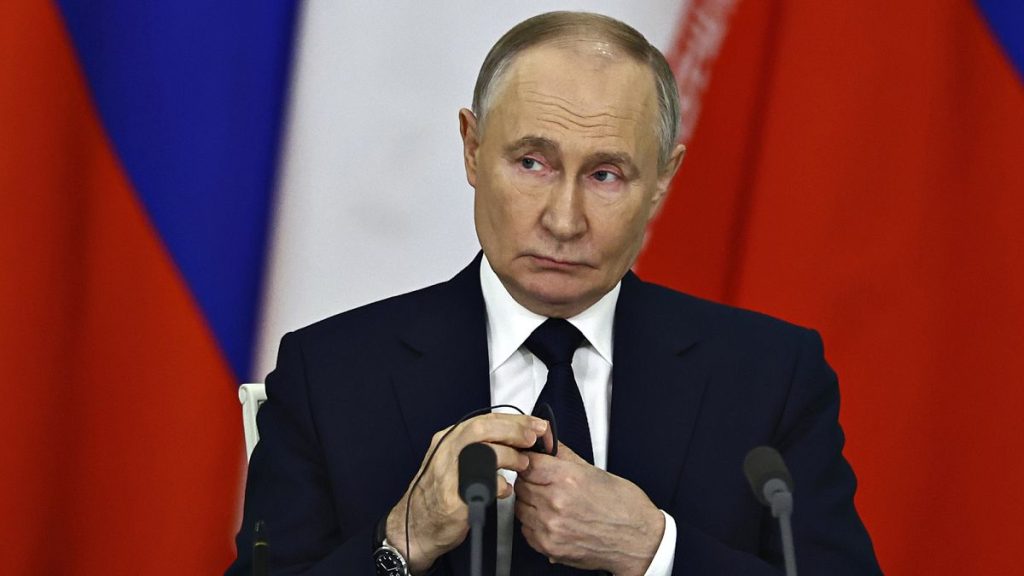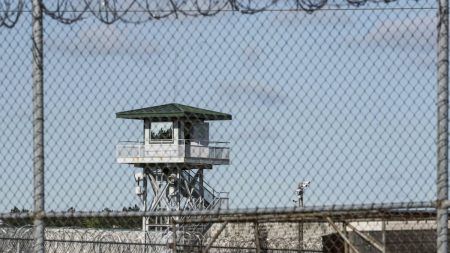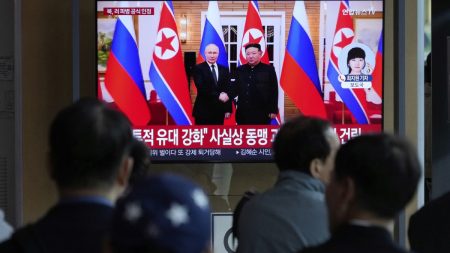The international community is making significant strides towards establishing a special tribunal to hold Russia’s leadership accountable for the crime of aggression against Ukraine. A coalition of 38 countries, encompassing all EU member states, has announced substantial progress in drafting the legal statute that will govern the tribunal’s jurisdiction and operations. While the statute remains under development, with details yet to be publicly disclosed, the coalition expresses optimism about its potential endorsement before the end of the year. This initiative signifies a critical step towards ensuring that those responsible for orchestrating the invasion face justice and deter future acts of aggression.
The envisioned tribunal, to be established within the framework of the Council of Europe, aims to prosecute Russia’s political and military leaders, including President Vladimir Putin. The focus on the crime of aggression distinguishes this effort from prosecutions of war crimes, crimes against humanity, and genocide, which target individuals directly involved in atrocities. The crime of aggression, by contrast, is a leadership crime, holding accountable the individual ultimately in control of the aggressor state. This distinction underscores the international community’s commitment to addressing the root cause of the conflict and preventing future acts of aggression by holding those at the highest levels of power responsible.
Defining the crime of aggression involves acts such as invasion, occupation, annexation, blockade of ports, or any other armed assault by one state against another. The International Criminal Court (ICC) defines it as the planning, preparation, initiation, or execution of an act of aggression by a person with effective control over a state’s political or military actions, constituting a manifest violation of the UN Charter. This definition directly implicates President Putin as the most likely defendant in a future trial. However, significant legal hurdles remain, including the immunity from prosecution enjoyed by heads of state under international law and the potential challenges of conducting a trial in absentia.
The pursuit of this tribunal stems from the limitations of the ICC’s jurisdiction over the crime of aggression. While the ICC can prosecute this crime under the Kampala Amendments, this only applies to states and nationals of states that are party to the Rome Statute. Russia, like the United States and China, is not a signatory, necessitating an alternative mechanism to ensure accountability. The ad-hoc tribunal proposed by Kyiv and Brussels seeks to address this jurisdictional gap by focusing specifically on Russia’s war against Ukraine. This bespoke approach underscores the international community’s determination to hold Russia accountable despite the legal complexities.
The importance of prosecuting the crime of aggression is emphasized by High Representative Kaja Kallas, who argues that without this foundational crime, other war crimes would not occur. Holding the Russian leadership accountable sends a crucial message that such actions will not go unpunished and serves as a deterrent against future aggression. This sentiment reflects a broader understanding that accountability is not only a matter of justice but also a vital tool for preventing future conflicts. The urgency of establishing the tribunal before the war’s end further underscores the international community’s commitment to ensuring timely justice and deterring any further escalation of the conflict.
The establishment of this tribunal signifies a critical step in upholding international law and ensuring accountability for acts of aggression. While substantial progress has been made, challenges remain, particularly regarding the legal intricacies surrounding the prosecution of heads of state. Nevertheless, the international community’s commitment to pursuing justice for Ukraine and deterring future acts of aggression remains steadfast. The potential impact of this tribunal extends beyond the immediate conflict, setting a precedent for holding powerful figures accountable for their actions and reinforcing the importance of international law in maintaining global peace and security. The ongoing efforts represent a landmark development in international criminal justice, with the potential to reshape the landscape of accountability for acts of aggression in the 21st century.










